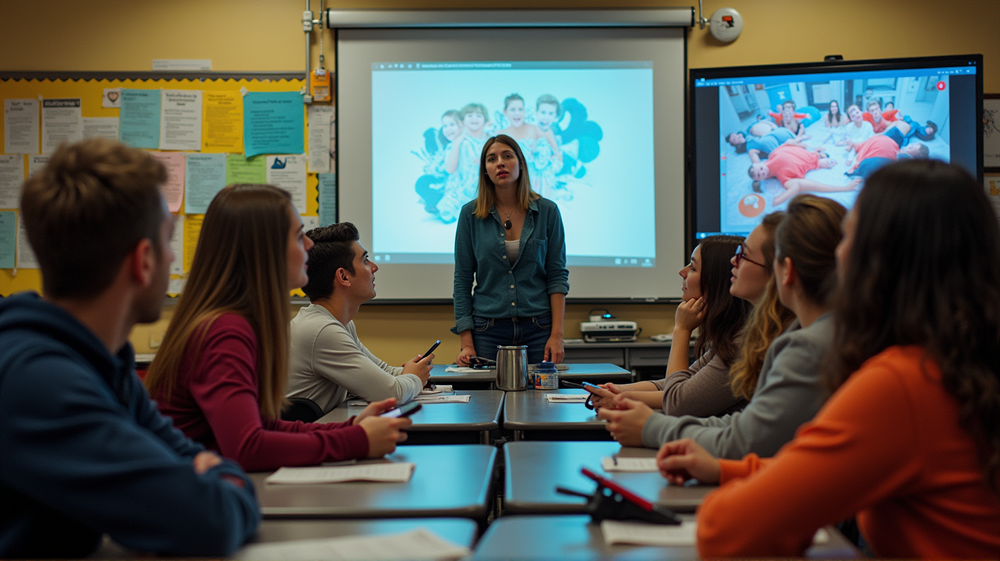NC Classrooms Unplugged: New Law Mandates Cellphone Off During Class
In a significant move towards more focused and safe learning environments, North Carolina has introduced a new law that bans the use of cellphones in classrooms and mandates lessons in social media literacy. As educational institutions evolve, this initiative steps forward to instill awareness and digital responsibility among students.
Turning Off Distractions
Under the new law, school boards across North Carolina are required to enforce a strict policy that mandates students to turn off all electronic devices during class time. This bold step aims to eliminate distractions and help students concentrate better on their studies. Teachers have found that constant notifications and the omnipresence of the internet can disrupt the learning process, reducing the students’ ability to engage fully. As stated in WRAL.com, this move is set to create a more productive educational atmosphere.
Literacy in the Digital Age
Beyond curbing distractions, the law highlights the necessity for digital literacy. Schools are now required to educate students about social media, fostering a digital mindset that acknowledges both its potentials and pitfalls. The initiative is aligned with preparing students to navigate the complexities of social networks responsibly and safely.
Safety First: Implementing Internet Security
Alongside these changes, the law emphasizes implementing wider internet safety and security measures. Schools will incorporate sessions on internet security protocols, highlighting ways to protect personal information in the cyber world. This measure aims to empower students with knowledge that can shield them from online threats and unethical digital practices.
A Move Towards Digital Discipline
Supporters of the new policy argue that it fosters a disciplined culture where students learn to make better choices regarding their priorities and time management. By encouraging face-to-face interactions and analytical thinking sans digital interferences, the law is seen as fostering critical skills necessary for personal and professional success.
Future Implications
This decision by North Carolina sets a precedent that could potentially influence educational policies nationwide. As technology continues to integrate into daily life, equipping the younger generation with proper digital literacy becomes paramount. The success of this law can serve as an influential model for other states wrestling with similar challenges.
For educators, students, and parents alike, the change heralds both a challenge and an opportunity—to harness the transformative power of education free from the shackles of constant digital distractions.




